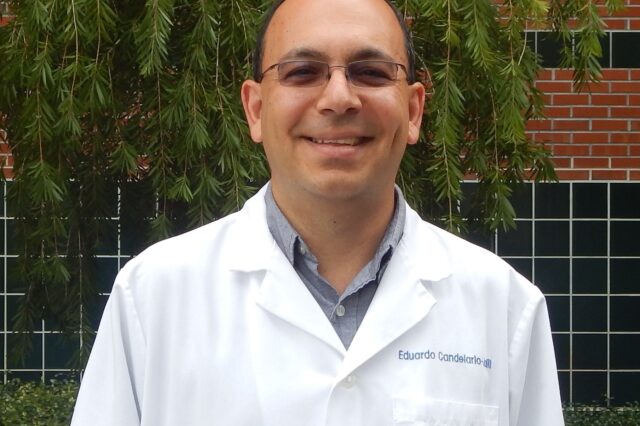Pulmonary hypertension drug shows promise for possible new use: preventing brain damage after stroke

A drug already approved for use in humans to treat pulmonary hypertension now shows promise in an animal model for protecting against brain damage and neurological impairment following stroke, University of Florida researchers report this week in the journal Stroke.
The research team from the Evelyn F. and William L. McKnight Brain Institute of the University of Florida found that the drug selexipag, which has been approved by the Food and Drug Administration to treat pulmonary arterial hypertension, yielded marked improvement in neurological function following ischemic stroke in a study of aged rats. Ischemic stroke is the most common type of stroke and occurs when a blood clot blocks a vessel carrying blood to the brain.
“This is a clinically used drug that could be repurposed for stroke because there’s a lot of data already in humans on its safety, and we demonstrated that it’s actually protective in a clinically relevant animal model of ischemic stroke,” said senior author Eduardo Candelario-Jalil, Ph.D., an assistant professor of neuroscience in UF’s College of Medicine. “There’s a lot of evidence indicating that if you activate a prostacyclin receptor in the lung, you reduce the effect of the hypertension in the lung. What we actually saw is this drug is very protective in a model of ischemic stroke in aged rats.”
Prostacyclin is a compound produced in the arterial walls and it works as an anticoagulant, reducing the ability of the blood to clot, and as a vasodilator, or widener of blood vessels. Thus far, targeting the prostacyclin receptor to reduce stroke injury has been hindered by a lack of available drugs.
The nearly three-year-long longitudinal study, which used MRI and neurobehavioral testing and took into account age-related metabolic factors, was carried out in collaboration with the McKnight Brain Institute’s Advanced Magnetic Resonance Imaging and Spectroscopy Facility.
“We found that key factors in stroke injury such as inflammation and oxidative stress were significantly reduced by the treatment,” Candelario-Jalil said.
Currently, the only FDA-approved treatment for ischemic stroke is the administration of tissue plasminogen activator, known as tPA, which, when used properly, saves lives and reduces long-term effects. An ischemic stroke occurs when a clot blocks an artery supplying part of the brain, and tPA works by breaking up the clot that caused the stroke. The main limitation of tPA is that it must be given soon after a stroke — within three to four and a half hours after the event.
In Candelario-Jalil’s study, treatment with the new drug was delayed to four and a half hours after the onset of stroke. Measuring at 48 hours post-stroke and 21 days post-stroke, the researchers found a significant reduction in inflammation and injury in the brain.
The Stroke Treatment Academic Industry Roundtable, a group of clinicians and stroke researchers from industry and academia, recommends that any potential drugs under development to protect against stroke injury be tested in combination with tPA in animals.
The next step in Candelario-Jalil’s research is to confirm the safety of combining the neuroprotective prostacyclin agent with the clot-busting effects of tPA and to confirm the team’s initial data in other animal models of stroke.
Side effects of the drug as currently used in low doses for pulmonary hypertension can include flushing, headache, nausea, diarrhea, and moderate vasodilation and hypotension.
Candelario-Jalil’s study, titled “Sustained Neurological Recovery after Stroke in Aged Rats Treated with a Novel Prostacyclin Analog,” was funded by the American Heart Association and the National Institutes of Health.
About the author
